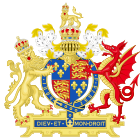Ale Houses Act 1551 facts for kids
| Act of Parliament | |

|
|
| Long title | An Act for Keepers of Ale-houses to be bound by Recognisances. |
|---|---|
| Citation | 5 & 6 Edw. 6. c. 25 |
| Dates | |
| Royal assent | 1552 |
| Repealed | 1828 |
| Other legislation | |
| Repealed by | Alehouse Act 1828 |
|
Status: Repealed
|
|
The Ale Houses Act 1551 (5 & 6 Edw. 6. c. 25), also known as the Licensing Act 1551, was an Act passed by the Parliament of England in 1552. Its main goal was to control problems that were happening in common ale-houses. This law helped create the system we still use today for licensing places that sell drinks in the United Kingdom. The Act was later cancelled by a new law, the Alehouse Act 1828, in 1828.
What was the Ale Houses Act 1551?
This Act gave special powers to local officials called Justices of the Peace. These officials were like local judges or police. They could decide where and when people were allowed to sell ale and beer in common ale-houses and tippling-houses. A tippling-house was just another name for a small place that sold drinks.
Getting a License
No one was allowed to run an ale-house without getting permission first. This permission was called a license. The Justices of the Peace would give out these licenses at their regular meetings, known as Quarter Sessions.
Keeping Order
To get a license, ale-house owners had to make a promise. They had to give a special guarantee, or "bond," to the Justices. This bond was a way to make sure the owners would keep things orderly. It also made sure that people didn't play banned games in their ale-houses. The main idea was to help keep the peace and make sure everyone behaved well.
Fairs were Different
There was one special exception to this rule. People were still allowed to sell ale in booths at a fair. This was allowed so that visitors to the fair could get drinks easily. This rule applied even if the person selling the ale didn't have a regular ale-house license.
 | John T. Biggers |
 | Thomas Blackshear |
 | Mark Bradford |
 | Beverly Buchanan |

